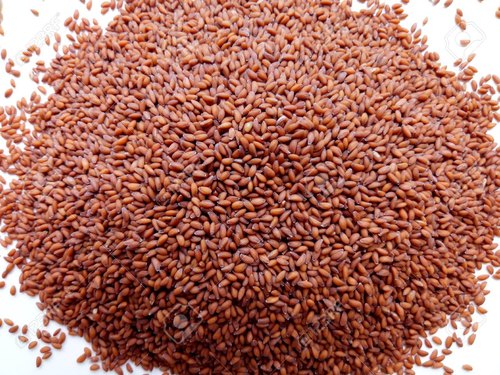Uncategorized
Halim – Asaliya – Lapidium Sativam
Contents
Worldwide names of Halim seed:-
Hindi:- chansoor, chandrashoor
Sanskrit:- chandrashoor, Chandrika, Bhadra, Nandini, Karvi
Marathi:- Ahliva
Bengali:- Halim, Halima
Gujarati:- Asahio, Asheriya
English:- chamsur, Common garden cress, Nasturtium cress, Common cress
Latin:- Lapidium Sativam, Lepidium Sativum
Other common names are:-
Chandraa-chor, Cresson de fontaine, Shargudaei, Ali, Halon, Chansur, Lepidium sativum, Aali vidhai, Asallio, candrikacharmahantri, daraa, Bécsi rozmaring; Hofkers; Tuinkers, Halim, Shahi, Agretto; Lepidio, Kinrenka; Koshoso; Nozenharen, tara tezak, Alavi beeja, Adityalu, Adeli, Chandrashura, Alisi vidhai, kurrutige, Tezak, aliverai, Aliliva, chandrashura, Raktaraji, Hurf, water cress, Aasali,Asali, ali verai, ali-virai, aliverai, alivirai, asalika, asalima, ashalika, bhadra, candrasura,Kurtige gida, Aaliv, Asali, Ahaliv, Chamsur, Halima, Aleveri, Adeli, Adalavitulu, Adityalu, Allibija, Peppergrass, Mastuerzo de huerta, Cresson alenois; Cresson alénois; Cresson des jardins; Cressonnette; Nasitort; Passerage cultivé, Kress salat, Rashad; Thifa, Jia du xing cai, mastruco, Gorukha posevna, Reřicha zahradní, Havekarse, Garten- Kresse, Matkarse, Traedgaardskrasse, Phakkat-nam; Thian-dan, Büyük yerli teresi; Pieprzyca siewa, Agrião; Mastruco, Creson; Urda vacii cultivată, Alivirai, Halium, Sipandan, Borsfű; Borsika; Hurkafű; Kerti zsázsa; Pereszlén, Aselio; Kundadag-naengi,Habburshad, Hidamba Saga, lepido, Mastuerzo, drighabija, jati, kalamesha, karavi, krishna, nandini, pashumehankarika, pasumehanakarika, raktabija, raktaraji, sidhaprayojana, Pepper Grass, Pepperwort, Poor Man`s Pepper, Rashad Mazrue, Halim Shaak, Asheliyo, Chansur, Halim, Aaserio, Allibeeja, haloon, haleh, towdri, tukhme-turrah-tezak, turrah-tizkah, chansar, farjir, habbar-rashad, habbur-rashad, habburrashad, half, hurf, reschad, akalam, candsur, aditya, adityalu, adiyalu, ahaaleev, ahaliv, ahliv, ahliva, asaaliya, athaleeva, Rukhmi-ispanda, Habb el-rashad, Yerli teresi, aali, aalividai, ali, alivitai, alivittu, cantiracura, cantirakam, kokila, alavibija, alli beeja, allibija, alvi, Berro de tierra; Lepido; Mastuerzo; chamsuru, chandrasur, adalvitulu, adeli, kurutige, ahaleeva Berro alenois; Berro de huerta; suvasura, vasapuspi, habb-ul-rashaad, Garden Cress, Garden pepper Cress, Crescione di giardino; Crescione inglese; , chandrashura, chandrasura, chandrika, Chandsara, Chandsura, Kryddkrassing; Harfulawaj, Asali, Tezak, Chamsur, Adityalu, Aliverai, Tere otu; chansar, chansaur, chaunsar, aadithyalu, aandilee, adalavitulu,
There are almost about 150 types of species found worldwide. several of them are wild cultivated or collected for their edible. Best known as L. Sativum which is traditionally grown in the basket as mustard and cress.it has a broad leaf-shaped like oval undivided leaves. Its seeds and leaf have a peppery flavor. It is very popular in the middle east.
Parts used:- Seeds, Leaves, oil
Properties:- It is strong smelling herb having pungent flavor, it has diuretic, laxative, and stimulant properties with expectorant effects.it helps to pacify Vata and Kapha dosha.
Uses:-
1:- Halim seed stimulates the uterus and increases lactation.
2:- it is helpful for multiple skin diseases.
3:- Halim seed decoction is used in treating hiccups.
4:- It proves helpful in Cough and asthma
5:- its seeds (powder) helps treat dysentery and diarrhea.
6:-it helps relive the rheumatic pains, sprains, dislocations, and bruises.
How to take Halim Seed:-
1:-Take 2 teaspoons of Halim seed boil in low flame in the pan with a glass of water until half water left, filter this water and drink this frequently in a day.
2:-For pain takes 50 grams of seed and fry in mustard oil, then filter this oil and apply on pain affected areas of the body.
3:- Else can make sweet chakki of Halim seed, like as of sesame seed we make.
Take care before use:-
Pregnant women should avoid taking this seed.


